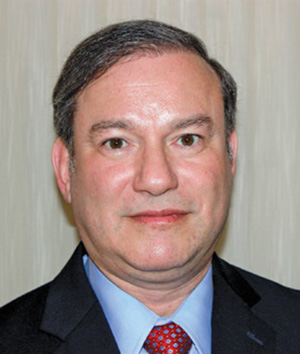
Earlier this month, Michaela Levit, a 19-year-old lone Israeli soldier from Miami, sadly committed suicide. She was the third Israeli lone soldier to commit suicide this year. Her suicide made the news because of her unique circumstances, However, there are many more suicides, nervous breakdowns and substance abuse issues that take place among Jewish people and others that never make the news. Since May is mental health awareness month, it is appropriate to write about this very important issue of our time.
Approximately 1% of all adults have schizophrenia. Close to 3% of all adults have a bipolar disorder. Nearly 7% of adults live with major depression. About 18% of adults live with anxiety disorders. The National Institute on Drug Abuse estimates that 10% of adults are abusing illicit drugs. These drugs include marijuana, amphetamines, inhalants, cocaine, psychedelics, and opioids such as prescription pain pills or heroin. In addition, approximately 7% of all adults have an alcohol use disorder.
Some estimate that up to 40% of your neighbors may be taking an anti-anxiety or antidepressant medication, and 20% of the adult population will suffer a major depression at some time in their lives.
As compared with gentiles, Jews typically experience more depressive symptoms and disorders than non-Jews. Seventy-five percent of studies reported less depression amongst religious Jews, though. This is attributed to religious coping. Jews who are true believers will often rely on God to help them cope with stress. This alleviates their stress, anxiety and depression. Psychological wellbeing is also associated with higher levels of religiosity. Suicide rates are about the same for Jews and non-Jews. Orthodox Jews used to drink less alcohol and abuse less drugs. However, they are starting to catch up to the general population. Rabbi Abraham Twerski founded the Gateway Rehabilitation Center near Pittsburgh to serve this population.
King Saul suffered from depression. Others say he was a classic example of bipolar disorder with manic episodes, raging against the future King David. Music was used to soothe and calm him. He tried, unsuccessfully, to commit suicide by falling on his sword.
King David pretended to be a madman when he fled from Saul. He feigned madness to escape Achish, the king of Gat. He ran around and banged on the doors of the city, letting saliva run down his beard. King Achish threw him out, letting him escape, asking his aides, “Why did you bring him to me? What were you thinking? Do we have a shortage of lunatics in this town? Let him go.”
The book of Daniel tells us that Nebuchadnezzar suffered from psychosis. He was banished from the company of people and ate grass like an ox. He sat around wet, let his hair grow, and he did not cut his nails. His psychotic episode lasted for seven years.
The Gemara in Bava Metzia (84a) tells us that Rabbi Yochanan went mad after he caused the death of Resh Lakish.
Halacha defines a “shoteh” as a person who lacks mental capacity. This classification can make a practical difference in the halachic law. For example, can a shoteh husband give his wife a divorce if he does not understand the process? What if the husband is normal but the wife becomes a shoteh? Can she accept the get? Is he stuck with her? Can a shoteh be counted in a minyan?
Other halachic questions may include the following: May one violate the Shabbos in order to relieve the anxiety or depression of a mentally ill patient? May one accompany his wife in labor to the hospital on Shabbos in order to give her peace of mind? If a woman is known to suffer postpartum depression after each childbirth, is she permitted to use contraception to avoid being pregnant again in the future? Are we permitted to put on the lights on Shabbos for a woman in labor to prevent mental anguish if she is blind?
As we can see, the halachic implications of mental illness and intellectual/developmental disabilities are profound.
Mental health awareness month is promoted to help people understand the role that mental health plays in our lives, reduce the stigma associated with mental illness, promote help-seeking behaviors and emotional well-being practices, and prevent suicide through individual education and outreach. I see increasing numbers of Jewish people putting aside the old stigma that seeking out help would ruin the family’s “shidduch” chances. Instead, they are availing themselves of programs that address the needs of the Orthodox and other Jewish communities.
I will end with an insight that Rabbi Abraham Twerski once related when we met in Florida years ago. When we pray for a person to have a “refuah sheleima,” a complete and speedy recovery, the formula of words we use is as follows: “May it be Your will, Hashem, to grant a complete healing, a “refuat hanefesh” and a “refuat haguf.” First we ask for the individual to be healed for spiritual matters and peace of mind. Only later do we ask that their physical bodies be healed. We need to treat mental health just as importantly as we treat physical health matters. Just as we cannot tell anyone to “shake off” a broken leg, so too it is unrealistic to tell someone with a serious emotional illness to simply “shake it off.”
By Rabbi Dr. Avi Kuperberg
Rabbi Dr. Avi Kuperberg is a forensic, clinical psychologist in private practice. He is president of the Chai Riders Motorcycle Club of NY/NJ. He leads the Summit Avenue Shabbos Gemara shiur and minyan in Fair Lawn, NJ, and is a member of the International Rabbinical Society. He can be reached at [email protected].










